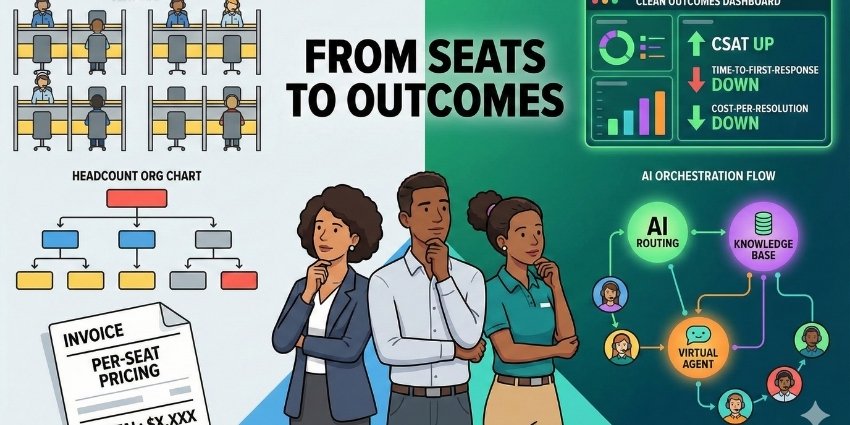After two years of rapid Generative AI adoption, the next big evolution is here: Agentic AI. Unlike previous AI technologies, this one operates with greater autonomy, solving multi-step problems with little to no human supervision—making it particularly well-suited for the CX space. That said, Agentic AI is also set to drive a significant increase in digital customers, which should not be taken lightly.
“Digital customers, or ‘machine customers,’ as Gartner refers to them, are essentially connected devices representing real individuals and their unique contexts,” explains Martin Taylor, Co-Founder and Deputy CEO of Content Guru.
“The more Agentic AI evolves, the more such customers businesses will have to attend to.”
While we’re not expecting to see mature Agentic applications arrive for at least the next 18 months, the time to prepare is now. Let’s look at the most promising CX arenas for early adoption and explore what businesses can do to keep up.
Where is Agentic AI Applicable? Relevant CX Arenas
Initial use cases based on Agentic AI are expected to build on existing technologies like Internet of Things, taking them a few steps further in terms of independence, proactivity, and contextualized decision-making. Here are three fields that can be reimagined as part of this evolution.
The Connected Home: Agentic AI can take smart home technology beyond basic automation. Consider a washing machine that detects a blocked outlet pipe, for example. While current machines can alert the user, an Agentic system could proactively schedule a service visit. But what if it’s also able to factor in external data like a warming weather forecast that could help defrost a frozen pipe?
“In this case, it might cancel the booking or refrain from making it altogether, recognizing that the issue will resolve itself,” Taylor suggests.
Virtual Wards (hospital at home): Agentic AI has the potential to revolutionize virtual wards by enhancing remote patient monitoring with deeper contextual awareness. Currently, connected medical devices track vital signs like blood pressure, heart rate, and oxygen levels, updating clinical records in real time. However, an Agentic AI system could go further:
“It could analyze patterns, recognizing if a patient’s unusual readings are actually normal for them, thereby avoiding unnecessary alerts,” Taylor explains.
If an Agentic system finds the reading irregular after considering the patient’s context, it could then trigger an appropriate action.
“It can ask them to stand up and take the reading again or suggest hydration to potentially get their blood pressure up,” he says. “If further support is needed, Agentic AI can coordinate a response from healthcare providers and will later be able to make medical predictions along with relevant interventions.”
Connected Vehicles: Modern vehicles can already diagnose issues and even alert emergency services after a collision. But Agentic AI could take this further, making cars more autonomous in managing their own maintenance.
“Imagine a car detecting frequent tire pressure loss—it wouldn’t just alert the driver but also identify nearby tire suppliers, negotiate the best deal, and schedule a fitting at a convenient time based on their calendar,” Taylor suggests.
Unlike traditional AI, which follows preset rules, Agentic AI could proactively and dynamically adjust based on real-time responses, as well as repeat actions for periodic activities like general servicing and annual vehicle inspections.
Navigate the Trend: Finding the Right AI Partner
Agentic AI will help remove many routine tasks from both the consumer and the agent, leading to improved efficiency and smoother customer experiences. However, as this new technology is still in its infancy, businesses will have to navigate an overwhelming number of fast-emerging solutions to get there.
“There will be plenty of horizon scanning and monitoring required, which will be quite difficult to do in-house for an end user organization,” Taylor says.
To tap into this new trend’s full potential, organizations are likely to need a trusted AI partner—one that can filter through the noise, orchestrate new technologies, and help integrate them into real-world CX strategies. Providers like Content Guru, well-versed in implementing foundational technologies like connected devices, Generative AI and natural language processing, are optimally positioned to serve as guides.
“As an Agentic AI-enabled platform with years of experience in processing IoT data at scale, we’re able to take all the feeds coming from digital customers – potentially billions of them – identify the context, and take the appropriate courses of action,” Taylor explains.
To learn more about Content Guru’s CX solutions, visit their website.







